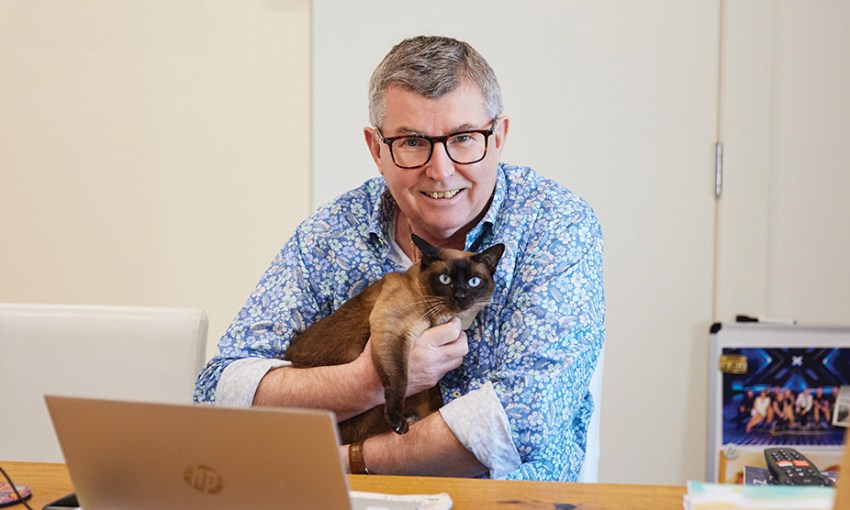Andy Kay, general manager of Channel Seven, admits he had no plan when it came to his career, but a love of sport and a talent for television has seen this Largs Bay boy rise to the top.
Team player: Seven’s Andy Kay on his fortunate life
Like many of the sports stars he’s interviewed over the years, Andy Kay’s career has centred around playing to his strengths, seizing opportunities and being in the right place at the right time. The perfect synergy of talent, guts and luck.
That winning formula has seen this former sports reporter rise to the top of the media ranks and now, Andy is general manager of Channel Seven Adelaide, as well as Head of Olympics and Commonwealth Games for the Network. Not bad for a job that started out in 1984 as a 16-day fill-in role in the Seven Adelaide newsroom.
Today, sitting in the beautiful beachside home he shares with wife Vicki and their beloved cats BeeKeeNee and Cressida (Sid), Andy is humble about his story and his success. However, as he begins to reminisce about the sporting events he’s produced over the past 40 years, it becomes clear that this is a story about a sports-mad kid who followed his dreams and hit the bigtime.
Andy’s career has taken him to elite sporting events all over the world, rubbing shoulders with the most famous sporting names on the planet – Pele, Michael Jordan, George Best, Sebastian Coe, Betty Cuthbert, Dawn Fraser, Roger Federer and many, many more.
Yet, what makes this story even more remarkable is that, as a long-haired teenager, Andy was headed for a job on the factory floor, just like his father and brothers before him.
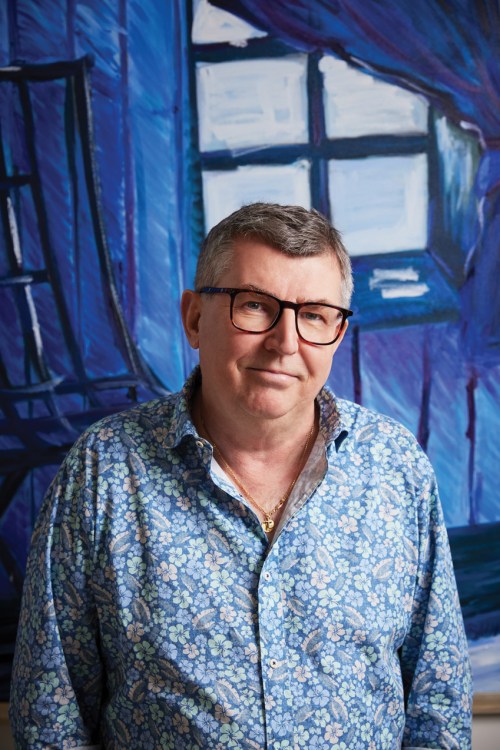
Back then, he was known as Andy Krolikowski, one of nine children born to Polish refugee parents Ted and Winifred (Winnie).
During World War II, Ted was in the Polish army before being captured and put in a German work camp. It was there that he met Winnie, who grew up in Poland and was forced to cook for the prisoners of war.
The young couple married and moved to Australia in 1949 raising their large brood, Elisabeth, Ursula, Jan, Ted, Andy, Patrick, Francis, Alex and Misha.
“Like a lot of refugees, Mum and Dad couldn’t speak English and we used to joke that Dad meant to pick A for America but he ended up picking A for Adelaide because we couldn’t work out how the hell he got here,” Andy says.
“Mum and Dad both learnt to speak German during the war and they taught us to speak it as well. When they didn’t want us to understand what they were talking about, they spoke in Polish.”
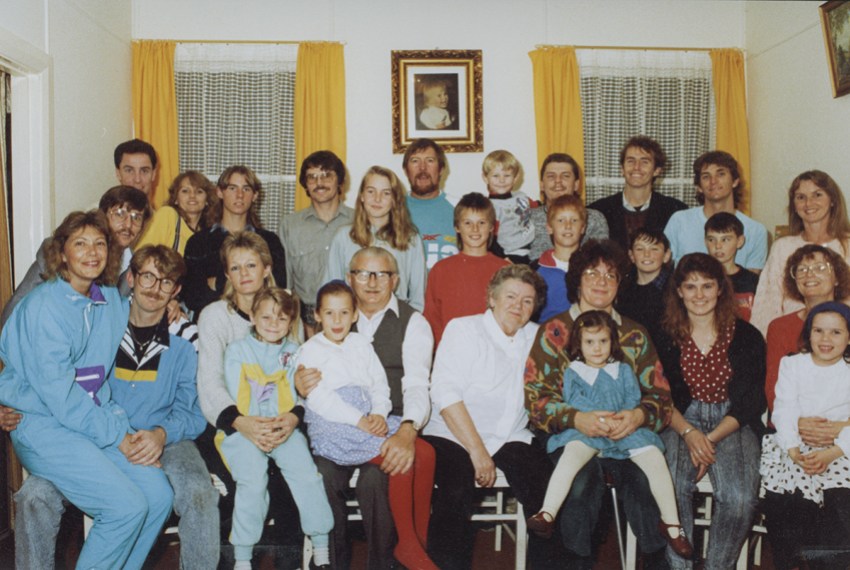
The legendary Krolikowski story goes that Winnie gave Ted 50 pounds to buy a decent suit so he could get a job. Instead, he took the cash and bought a block of land in Largs Bay.
“Then Dad and his mates built the house in Walton Street where we lived for our entire lives; a little asbestos three-bedroom home with 11 people in it,” Andy says.
Andy and his five brothers shared one room (three sets of bunks) while the girls were in another. Money and space were tight but it was a loving household bursting with people, music and life.
Members of the tight-knit Polish community would converge on the tiny house and Andy remembers nights when the men would play cards while the women sat around the kitchen table complaining about their husbands.
“The men would sit in the makeshift dining room and play cards on a Friday night and drink vodka and all us kids would sit around and watch them and laugh because we couldn’t understand what they were saying,” he says.
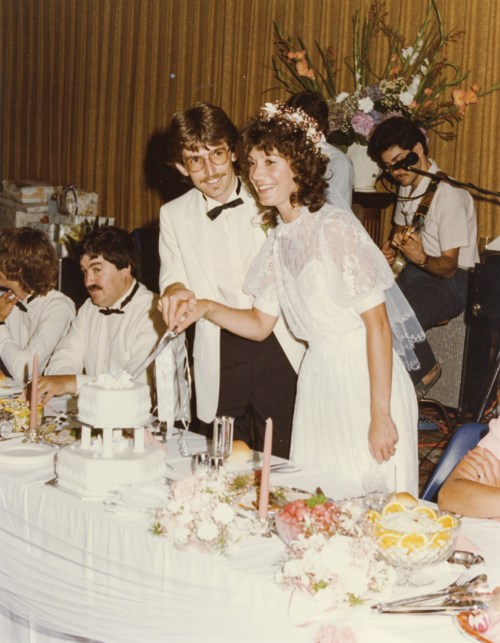
“They would get so aggressive, when they were only playing for match sticks, not real money!”
Andy’s father was a genius cook and his speciality was a Polish roulade, veal stuffed with bacon and onion, tied up with strings.
“Dad would slowly braise that for hours, then he’d make these dumplings, and the dumplings and the gravy with this meat was… oh my god,” says Andy, who inherited his father’s love of cooking.
Non-negotiables in the Krolikowski household were Holden cars, mass on Sundays (“We took up the whole row”) and Polish dancing lessons at the Semaphore Palais, taught by Ted.
While it was a happy childhood, there were also immense hardships. The biggest tragedy to rock the family was when Andy’s brother Jan fell from a cliff during a school excursion, suffering horrific injuries. The 11-year-old ended up in a coma for six months and then lost the use of his right side for the rest of his life.
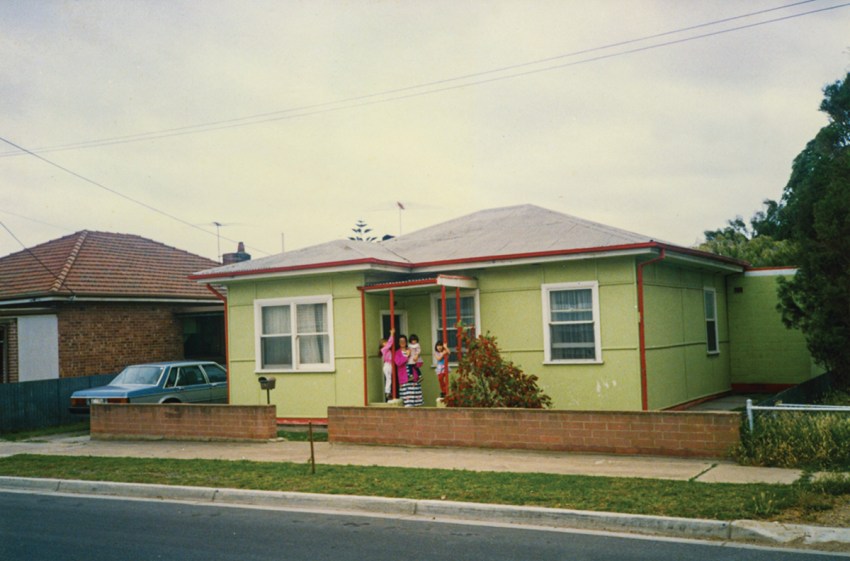
“He was the smartest kid we’d ever seen and played violin like a professional at 10,” Andy says.
“He had to live with that and when he came back to school, he had to wear a helmet because he had no skull.
“It was pretty tough and it affected all of us differently. We all looked out for him, some better than others. Kids would pick on him because he wore a helmet and say, ‘Who’s that?’ and I’d say, ‘I don’t know’. My own brother. I just didn’t know how to deal with it, I was only about seven at the time.”
By his own admission Andy was a “ratbag” of a kid, somewhere between “cheeky and a little shit”.
While most of his siblings excelled at school, Andy says he was a “hopeless student”. He was an outdoors kid who loved sport, particularly basketball. He remembers playing against a great young player named Phil Smyth, who went on to become an Olympic and state player, as well as coach of the Adelaide 36ers.
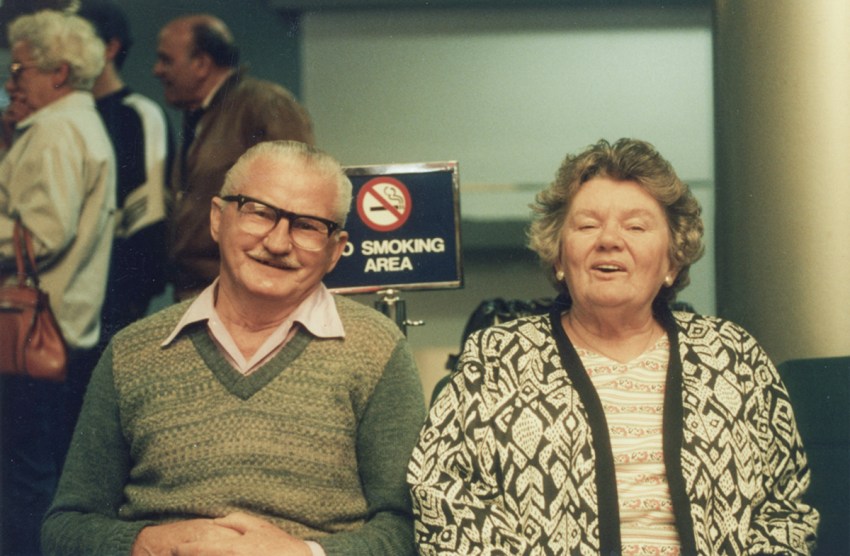
“Years later, Phil used to joke that he ended up playing in four Olympic teams and I’d say, ‘Well I produced 11 of them’,” Andy laughs.
“He ended up working for me.”
At 15 years of age, Andy dropped out of St Michael’s College and drifted into odd jobs. He worked at Ron Heath Tyres in Port Adelaide, did a stint at Des Blackmore’s garage in Largs Bay, then tried a desk job at the Bureau of Census and Statistics.
“I remember watching all the people at the Bureau and thinking, ‘I can’t do this all my life, I can’t sit in a chair and count people’,” Andy says.
By then, there was mounting pressure for Andy to join his father and two brothers on the production line at the ICI factory in Osborne. His father had worked at the chemical manufacturer for years, often pulling double shifts from 6am to midnight. Andy knew there had to be another way.
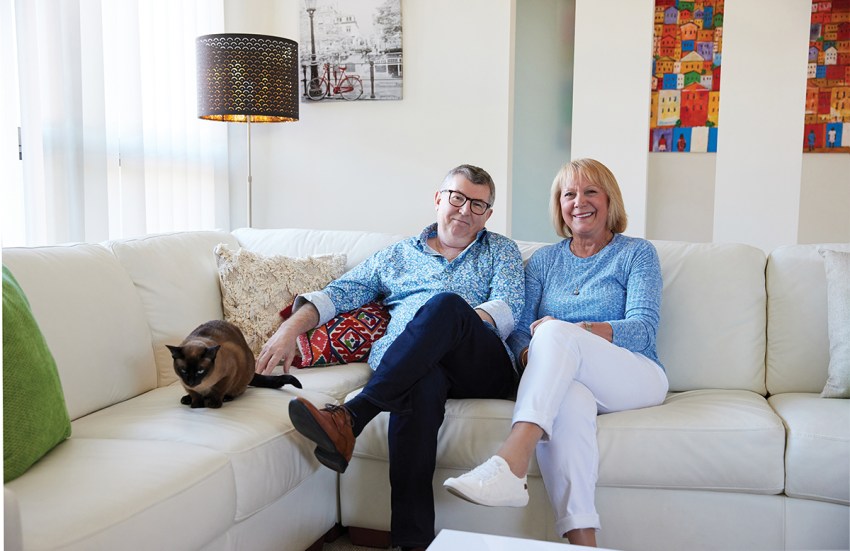
Drawing on what he describes as his only talents – “talking to people and bullshitting” – the young lad set his sights on a career in radio. In 1977, Andy was lucky enough to score a junior producing role with 5DN.
“I had to tell Dad I wasn’t going to work in the factory,” Andy says.
“He was furious. He said, ‘Hang on, the factory pays triple what the radio station pays’. He said it was the worst decision of my life.”
The young hopeful began working with all the top announcers of the day, including Jeremy Cordeaux, Ken Dicken, Nan Witcomb, Tony Murphy and Jeff Medwell. Andy eventually ended up producing a sports show with a new young-gun named Ken “KG” Cunningham. His dreams were coming true.
“I had no idea what a producer actually did but I looked up to all of these radio people, they were stars,” Andy says.
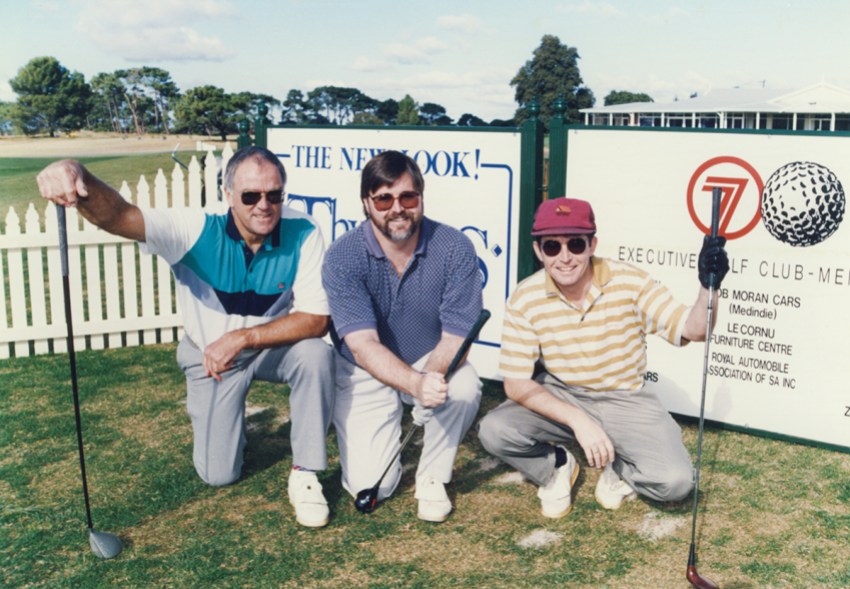
“I quickly realised all I had to do were two things: convince people to go on the radio and talk or, if there was no one talking, create something for them to ring up about.”
The 5DN program director at the time, Marty Smith saw something in the eager young recruit. There was one small problem – his surname. It didn’t work well on the telephone and Andy would constantly have to spell it.
Eventually it was easier to just say Andy K, which then got changed to Andy Kay.
“I’d say 90 percent of the people I work with now wouldn’t know there’s actually another name,” he says.
During those early days Andy had three simple ambitions. “I can tell you those three never left me. I wanted to go to an Olympics, I wanted to own a piece of Bang & Olufsen equipment and I thought I’d be the wealthiest person in the world if I earnt $50,000 a year.
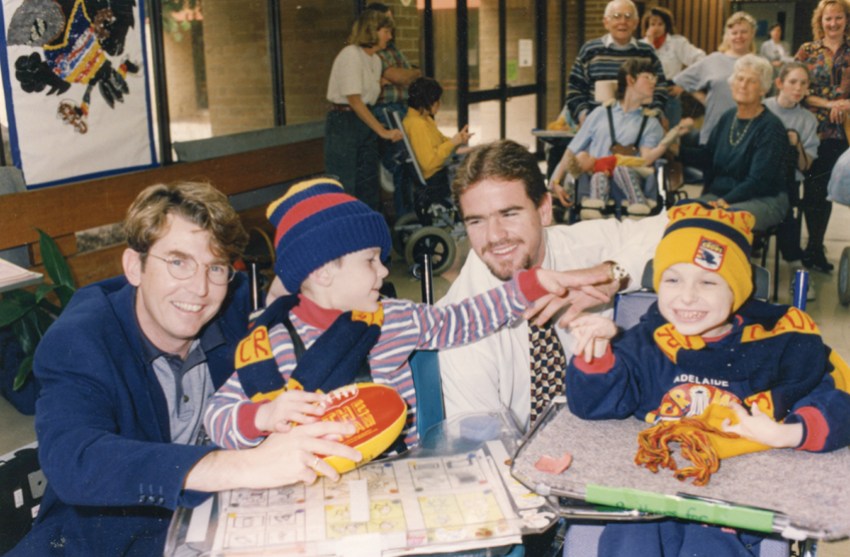
“I remember telling Dad that and he said, ‘You’re an idiot’. In terms of ambition, I don’t recall having much but I do remember being cocky and thinking, ‘Why has that guy got that particular job? I could do that’.”
That self-belief saw the young producer move from 5DN to Channel Seven in 1984 as a sports reporter. He has been with the network ever since.
“I had never done TV in my life and I didn’t realise they were going to send me out on the road as a reporter,” Andy says.
“But it’s like the rest of my career, I just thought, oh yeah, I’ll give that a shot.”
That same year Andy met and married state netball champion Vicki Rundell. The duo met on a blind date and were married three months later.
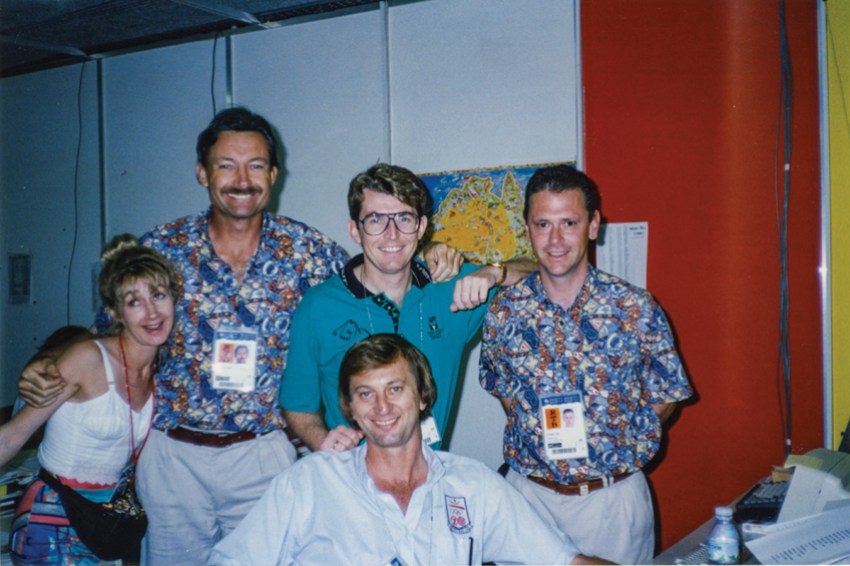
“She didn’t give a shit about the media or what I did,” Andy says.
“She was very independent, but not very bolshie. We were both mad on sport, as in she played it and I watched it.”
Vicki, who worked in computer programming, says there was an instant connection between the two.
“He was a very smart, engaging and funny guy,” she says.
The mid ’80s saw Andy offered a role producing a new Seven pilot out of Melbourne called Seasons – hailed to be the 60 Minutes of sport, hosted by another television star on the rise, Bruce McAvaney.
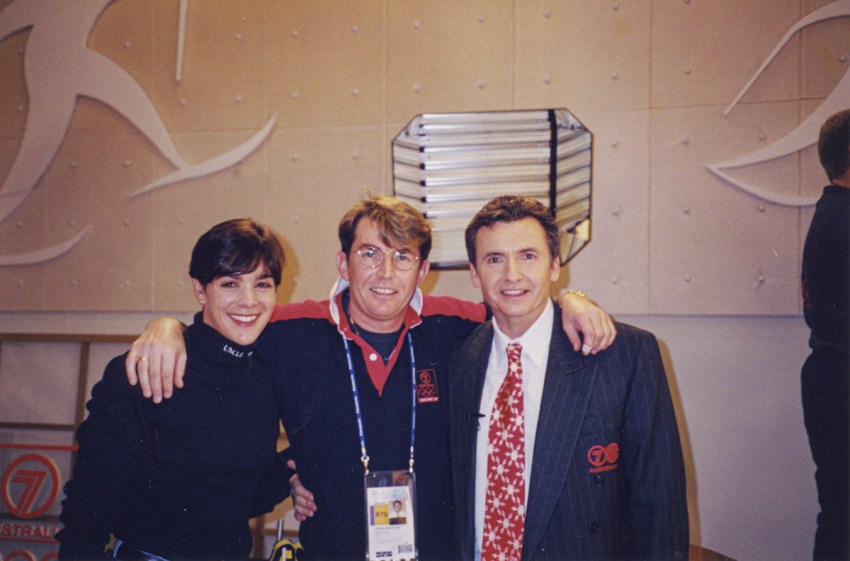
“I remember we did a story on these two little girls, 10 years old and 11 years old, who could really hit a tennis ball – Venus and Serena Williams. No one had ever heard of them before,” Andy says.
While the show was never picked up, it did have one great outcome. Andy brought on a young producer named Annie Johnson – it was how she and now-husband Bruce McAvaney first met.
When the inaugural Adelaide Crows team was formed in 1990, Andy stepped up to host the official club events, as well as compere Seven’s Crows Show on television. The experience was enough to cement Andy’s instincts that his talents lay behind the camera, not in front of it.
“I didn’t want it enough to be good at it,” he says.
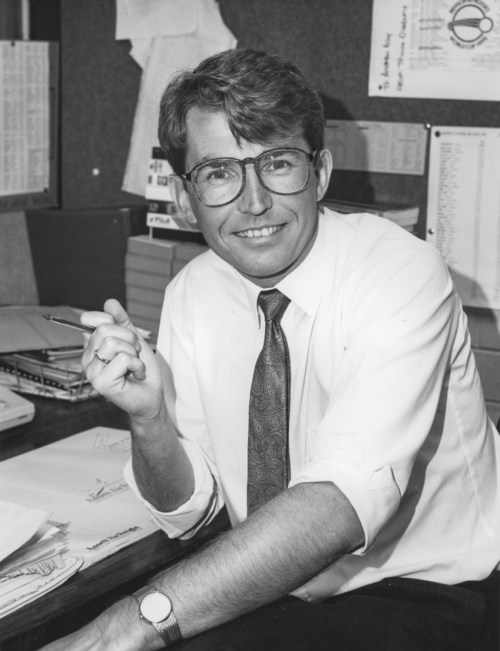
“I will never forget when Vicki and I were walking down Rundle Mall one day and some bloke recognised me and called out, ‘Hey, wanker’. I never did the show again.”
Then, in 1992, Andy was offered the role of a researcher on the Barcelona Olympics, heading to the games with Seven colleague Max Stevens. That led to producing roles at events all around the globe, including the athletics world championships in Stuttgart in 1993, then in Sweden in 1995 and the Atlanta Olympics in 1996.
Eventually, the network made it clear that if Andy wanted to continue working at this level, he’d need to move to Sydney. He and Vicki made the move in 1997 and Vicki took a senior role with IBM, while Andy joined the sports team at Seven’s Epping studios.
“There was no plan; zero,” he says.
“I would live by two sayings alone – timing is everything and this will only work if no one cares who gets the credit. I probably put that at the bottom of every production manual I’ve written for every event I’ve ever worked on. If you think you’re better than the whole team put together, then don’t bother.”
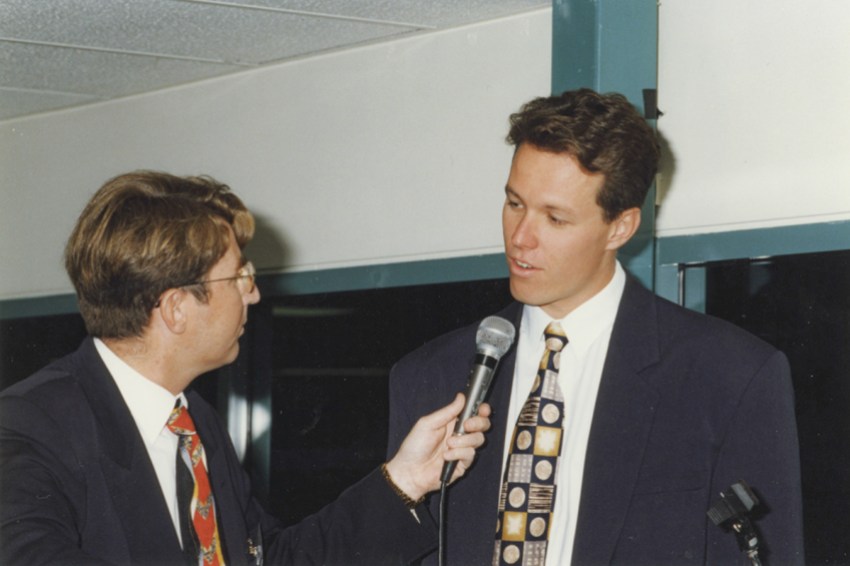
In 1998, with the Sydney games just two years away, a new head of sport at Channel Seven, BBC-trained Harold Anderson, took Andy and Vicki out for dinner one night.
“He said, ‘I want you to produce the Olympics’,” Andy says.
“Now, being a senior producer at the Olympics as opposed to running the whole thing under your watch, I was petrified, but you couldn’t say no.
“He then spent the whole dinner talking to Vicki and said, ‘Say goodbye to your husband for a couple of years because I need him’.
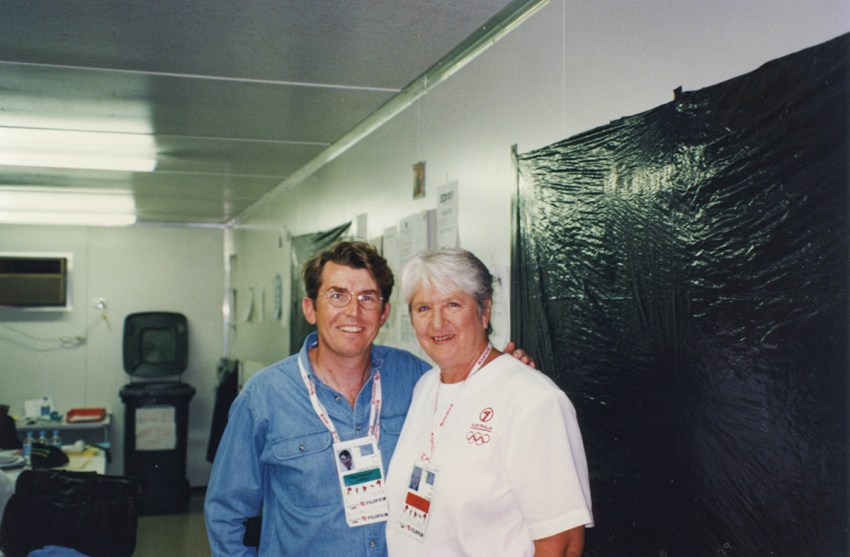
“Then he finished his meal and got up and left and we just sat there going, ‘What is our life going to be like?’. Being a home Games you already knew that Catherine Freeman and Thorpey [Ian Thorpe] were going to be superstars. It was a really exciting time, but also an enormous challenge.”
Andy began building his Olympics team from the ground up, ending up with more than 500 people in his charge.
“It just happened and everyone did some amazing work,” he says of the coverage.
However, two of the things he’s most proud of during that time are bringing presenter Johanna Griggs back to the network – she’d been let go a few years prior – and approaching John Doyle and Greig Pickhaver (“Rampaging Roy Slaven” and “HG Nelson”) to produce a nightly comedy show during the games. The Dream became a ratings juggernaut; an iconic hit, with millions of viewers tuning in each night.
“When I was planning Sydney, I kept looking at the schedule and thinking, there’s 3000 hours of sport, people are going to be that wired, I need something else,” Andy says.
“I had no idea what but I knew I needed something.”
After seeing the comedy duo perform at a black-tie function, Andy realised he’d found what he needed. He gave them his card and the deal was done within days.
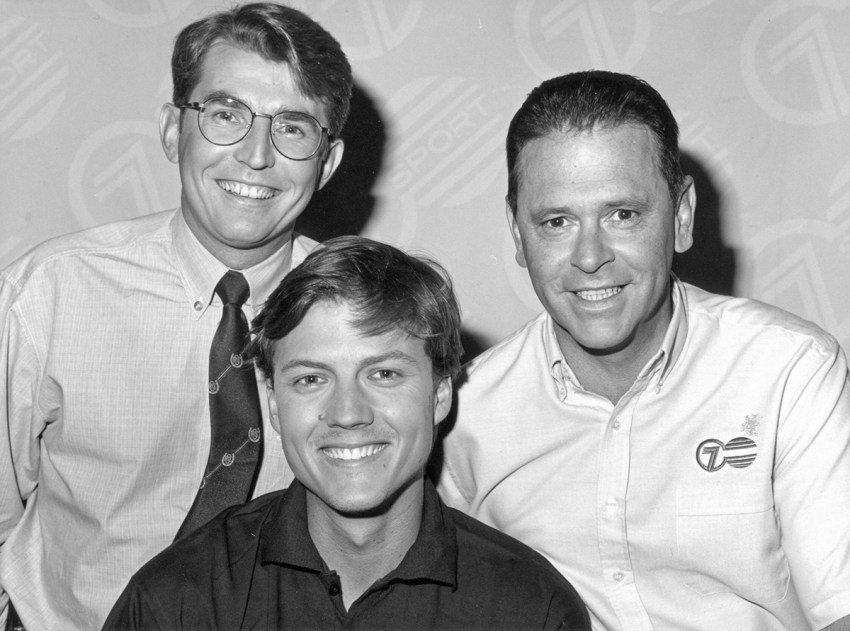
“I told them I had two rules – never bag an athlete and never bag a sponsor,” Andy says. “Their rules were ‘Never tell us what to do, other than your two rules, and we get to choose our crew’. I said, ‘Done’.”
But it wasn’t all smooth sailing and Andy had a moment of sheer panic as he watched a rehearsal of The Dream.
“Then a well-known television personality called me and said, ‘Congratulations, you have destroyed the Olympics’, and this was before it even went to air,” Andy says.
“I took it pretty hard. But by day three of the games, NBC wanted to run parts of the show, and it just got bigger and bigger and we had two million viewers at midnight.”
All up, Andy has overseen Seven’s Olympics broadcasts spanning 11 Games, as well as produced countless other sporting events – the Australian Open tennis from 1999 to 2010, the Melbourne Cup from 2002 to 2010, the AFL, the Commonwealth Games – the list goes on.
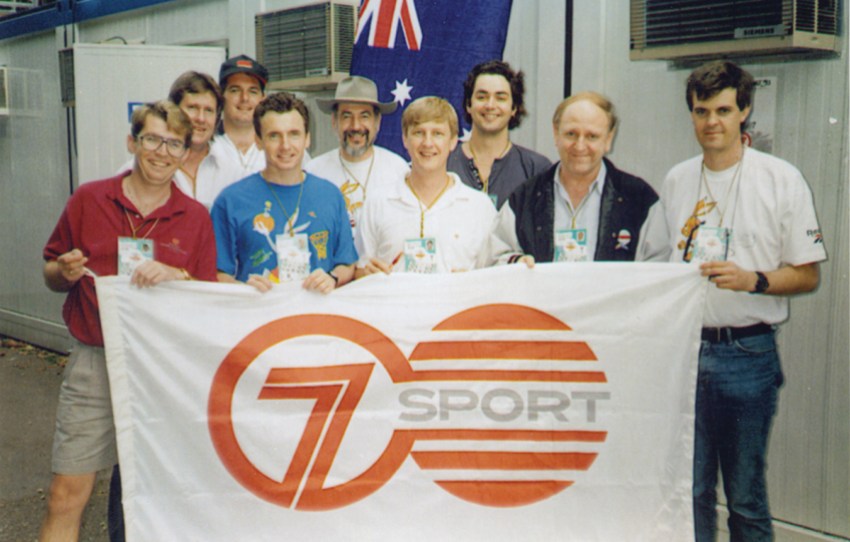
Now, as general manager, the television veteran is also fiercely protective of his team, particularly the on-air talent who are often on the receiving end of public criticism. He’s been known to take the odd taxi driver to task for bagging Seven personalities.
“It takes guts to talk to camera and do it really well,” he says.
“So, I think it’s more about the impact my colleagues have had on me rather than the other way around.
“Johanna Griggs and Bruce [McAvaney], for example, they are just so committed and passionate about what they do. We’ve worked together for nearly 30 years and we are good mates. You look back on these things you’ve achieved together and go, gee, that was good.
“These are really hardworking people. The Sunrise team, they make hours of live TV every week, that’s not easy. The Seven News on-air reporting team in Adelaide are phenomenal; there’s not a weak link there.”
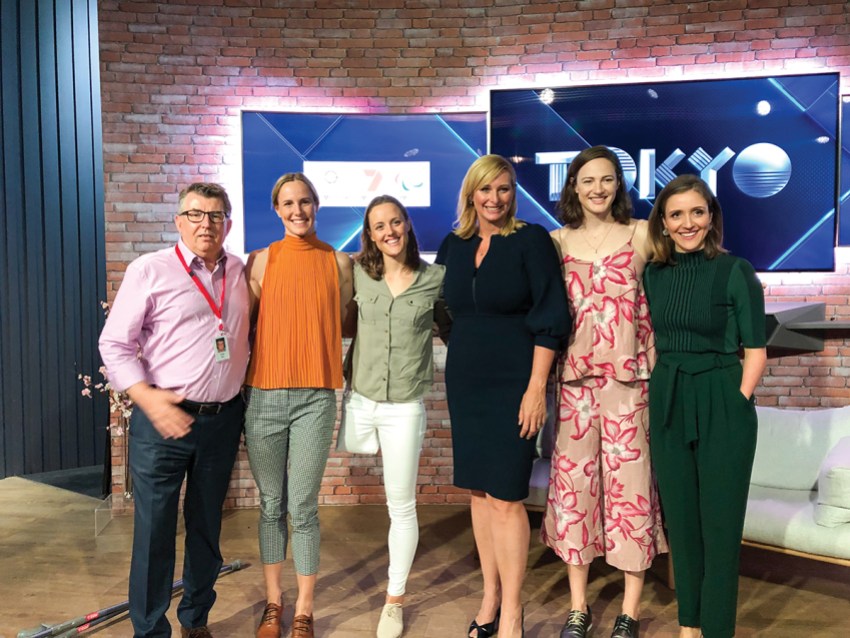
A huge whiteboard in Vicki and Andy’s home office gives some insight into their hectic schedule. While Vicki is now retired, she helps co-ordinate Andy’s enormous work load and engagements across both Adelaide and Sydney. In their rare downtime they like walks on their local beach and, for Andy, cooking is a passion. Spending time with family is also high on the agenda. Sadly, Andy’s parents and three of his brothers have passed away but the huge extended Krolikowski clan remains tight-knit.
At 66, Andy hasn’t factored in retirement just yet, committed and loyal as ever to the network that shaped his success and the team he’s now leading.
“We have one saying amongst my senior colleagues and I, and that is that you’ve got to know what you don’t know’,” he says.
“I think I’m one of the most privileged people around because I’m not that good. It’s a bit like when I used to host the Crows Show, I knew I was terrible but I also knew that I could teach people to be quite good at it.
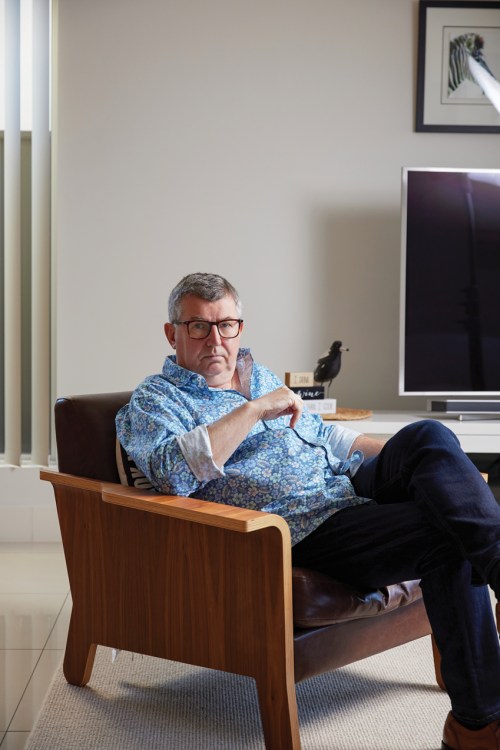
“I guess one thing I’m not bad at is identifying the strengths of people and encouraging those.”
For a man who can now say he’s been to the Olympics, owns Bang & Olufsen speakers and earns more than $50,000 a year – that’s a game well played.
This article first appeared in the October 2022 issue of SALIFE magazine.



